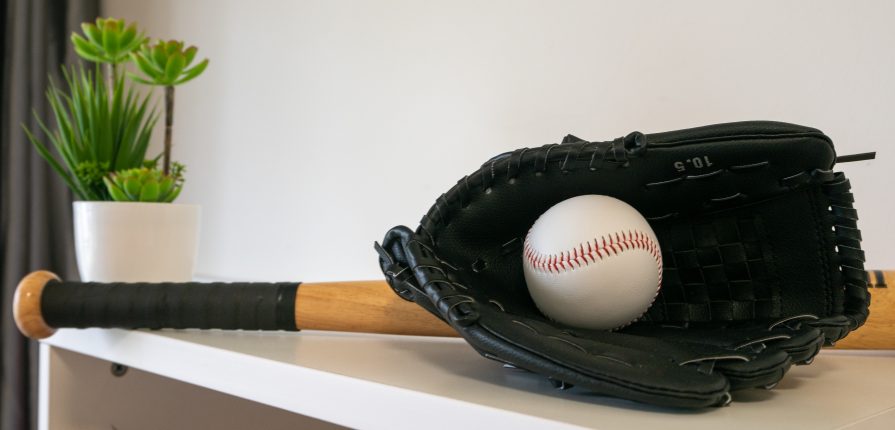Athletics and Academics: A Match Made in Heaven
Organized sports programs at school offer students the opportunity to weigh their physical talents against other competitors in a fun and rewarding way. In addition, many of the soft skills integral to success in the workplace are formed and refined through team sports practice and play. But how does physical activities affect the academic performance of student-athletes? From employability to academic excellence, participation in organized sports is beneficial to students in a variety of ways.
Replacing P.E. Class with an Additional Subject Does Not Improve GPA.
Suppose P.E. was an optional class for students to take. In that case, it is safe to say that a good number of parents would consider replacing P.E. with an additional subject, the logic being that more time spent studying correlates with better grades or higher scores. While there is an abundance of evidence that supports the benefits of additional tutoring for weak subjects, research has shown that “. . .adding time to “academic” or “curricular” subjects by taking time from physical education programs does not enhance grades in these subjects and may be detrimental to health.” Furthermore, the same study concluded that “. . . additional curricular emphasis on PE may result in small absolute gains in grade point average.” So not only does extra time spent in P.E. contribute to a better GPA, but less time spent in P.E. provides no tangible increase in GPA. Although it is easy to dismiss physical education and organized sports as just “playtime,” physical activity and academic achievement are undoubtedly intertwined. Both parents and educators need to respect the impact of sports and exercise on academic performance and should strongly encourage student participation.
Student-Athletes Experience Greater Success in the Workplace.
Companies look for a myriad of traits when considering candidates for positions. Strong work ethic, interpersonal skills, leadership, accountability, confidence, and self-discipline, are all characteristics of a good employee. Still, these are also qualities that are fostered and developed through participation in organized sports. Cornell University published a paper on the relationship between employability and sports participation, finding that former student athletes, “. . . had careers that were disproportionately in ‘upper management’. . . [and] our results show a positive relationship between participation in competitive youth sports and several measures of long-term personal success and prosociality.” Moreover, the article posits that, “. . .former student-athletes tend to earn significantly higher incomes than people who did not play sports.” This means that student athletes experienced greater rates of success in life, earned more, and were more likely to work in leadership positions than non-athletes. But what the research really shows is that the skills and traits fostered in organized sports are not just applicable to working life but also integral to one’s success in the workplace.
Physical Activity is Integral to a Student’s Mental Well-Being.
Knowing that physical activity and academic performance are related is important, but understanding how and why it is important is essential to truly appreciate this relationship. In an article published by the National Center for Biotechnology Information, researchers found that “Children respond faster and with greater accuracy to a variety of cognitive tasks after participating in a session of physical activity.” This post-exercise heightened state of cognition has also been observed in multiple studies, which involved students that were offered physical activities during
breaks between learning sessions. The benefits of this practice include “. . . better attention, increased on-task behaviors, and improved academic performance.” But the benefits that children experience from regular physical activity don’t end there. According to the Canadian Fitness and Lifestyle Research Institute, there are both short and long term benefits to regular physical activity, “[In the short term] exercise leads to a state of relaxation that lasts up to 2 hours. . . accompanied by improved concentration, enhanced creativity and memory, and improved mood state. . . [In the long term] increased self-confidence and self-image, reduced aggression, and decreased anxiety and depression.” Though education is the primary objective of any school, student health is an essential factor in the learning process. Fortunately for our students, RAS emphasizes the importance of fitness at all grade levels and offers a variety of organized sports activities for students to choose from.
Student-Athletes on Average have Higher GPAs than Non-Athletes.
Arguably the most common case against organized sports and P.E. classes is that, rather than spending their time doing those activities; students should spend time studying additional academic subjects. This would, in theory, enable students to push the limits of their knowledge even further. But research has shown that many student-athletes excel in their studies and that replacing fitness with academic subjects does not improve student GPAs. According to a study that reviewed the academic performance of high school students in Kansas (U.S.), researchers found that “High school athletes earned higher grades, had better attendance, graduated at a higher rate, dropped out of school less frequently, and scored higher on state assessments than did non-athletes.” One thing to consider is that student-athletes are held to higher academic standards than non-competitors. At RAS, student-athletes are not allowed to participate in sports or after school activities if they are on academic probation. This is an additional motivation for students to not only keep their grades up but to also avoid falling below a certain threshold in the first place. Students who do not participate in sports have less “at stake” when their grades drop, so they are less compelled to improve and maintain them.
Here at RAS, the balance of academics and physical activities are an integral component of our holistic and modern approach to education. To learn more about our Sports and CCA program, be sure to contact our Athletics Director, Mr. Lennart Van Vlerken.
Mr. James Elliot


